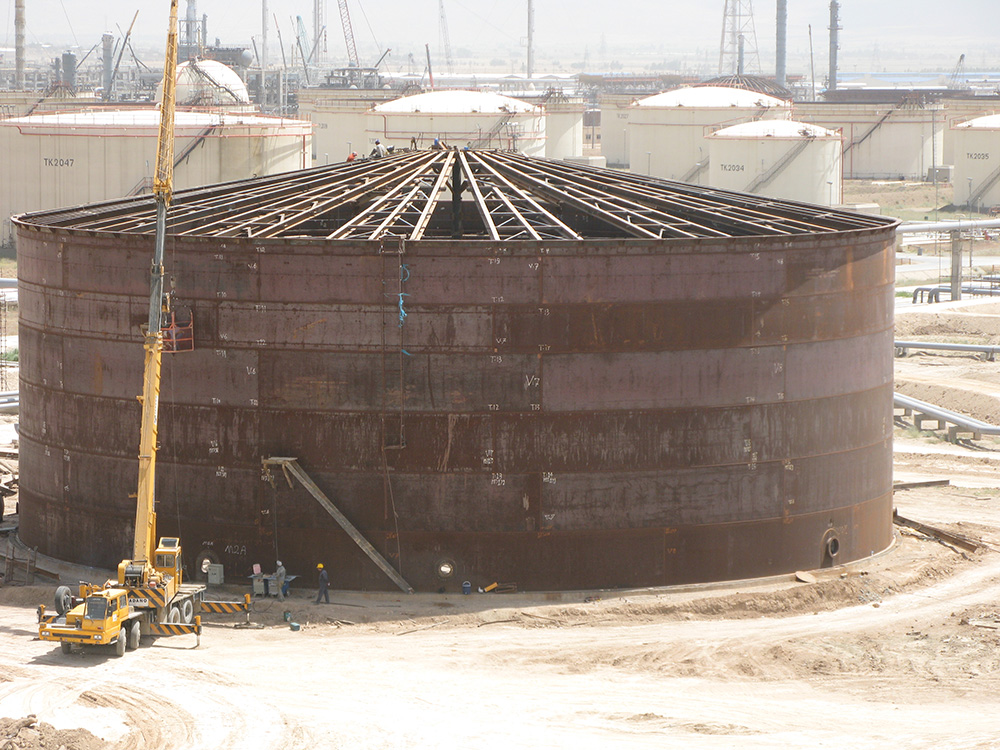The oil refining industry is among the most complex and sensitive sectors in the world, where each stage relies heavily on advanced and high-quality equipment. Crude oil undergoes multiple chemical and thermal processes in refineries to produce valuable products such as gasoline, diesel, kerosene, and LPG. The final product quality is directly linked to the efficiency and precision of refinery equipment.
Petrosazeh Beinolmelal Aram Co. (Petrosazeh), with years of experience in supplying advanced equipment meeting international standards, assists refineries in optimizing processes and producing high-purity products.
This article explores the most important refinery equipment—including furnaces, filters, flares, and condensers—and explains the role of each in ensuring product quality and improving process efficiency.
Importance of Refinery Equipment in Product Quality
Refinery equipment forms the backbone of refining processes, performing vital functions such as heat supply, purification, waste gas management, and cooling. Without proper operation, producing high-quality products is impossible.
Selecting high-quality equipment not only enhances process efficiency but also reduces operational costs, ensures worker safety, and complies with environmental standards. Poor performance of any equipment can directly affect the final product. For instance:
- Inefficient furnaces may cause undesirable hydrocarbon decomposition.
- Inadequate filters fail to remove particles and impurities.
- Flares and condensers stabilize processes by safely handling gases and converting vapors to liquids, thereby maintaining product consistency.
Also read: Key factors in choosing refinery equipment for better performance
Refinery Furnace
Refinery furnaces are the primary heat source for processes like distillation and cracking. They provide the energy required to break molecular bonds and separate crude oil components using fuels such as natural gas. Petrosazeh furnaces feature high thermal efficiency, robust design, and precise temperature control, optimizing energy use and preventing heat loss.
Temperature control is critical:
- Excessive heat can produce unwanted byproducts, reducing gasoline and diesel quality.
- Coke formation inside tubes can obstruct flow and halt operations.
Advanced designs and heat-resistant materials reduce these issues and extend furnace lifespan.
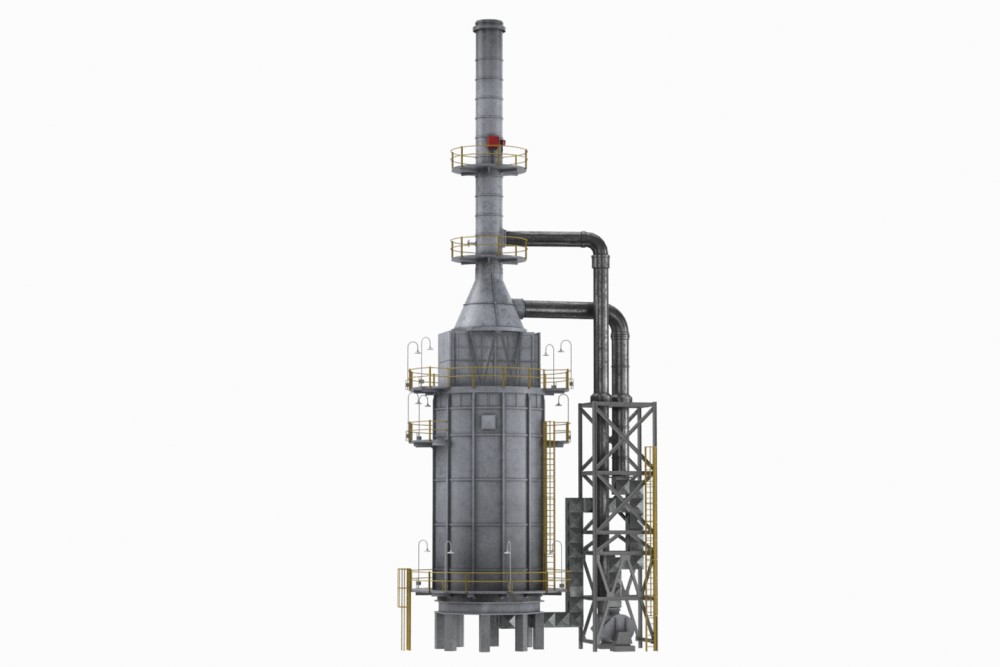
Key Benefits of Refinery Furnaces:
- Maintain thermal stability and consistent product quality
- Reduce energy consumption and operational costs
- Enable real-time temperature monitoring via IoT sensors
Refinery Filters
Refinery filters remove solids, moisture, and contaminants from fluid streams and are used throughout refining processes. Common types include cartridge filters, coalescer-separators, and basket filters, each playing a unique role in ensuring product quality.
Petrosazeh supplies filters that comply with international standards and withstand harsh refinery conditions.
Filters directly affect product quality. For example, in diesel production, advanced filters remove suspended particles, resulting in fuel that meets Euro 5 and Euro 6 standards. Inadequate filtration can damage downstream equipment and lower product quality.
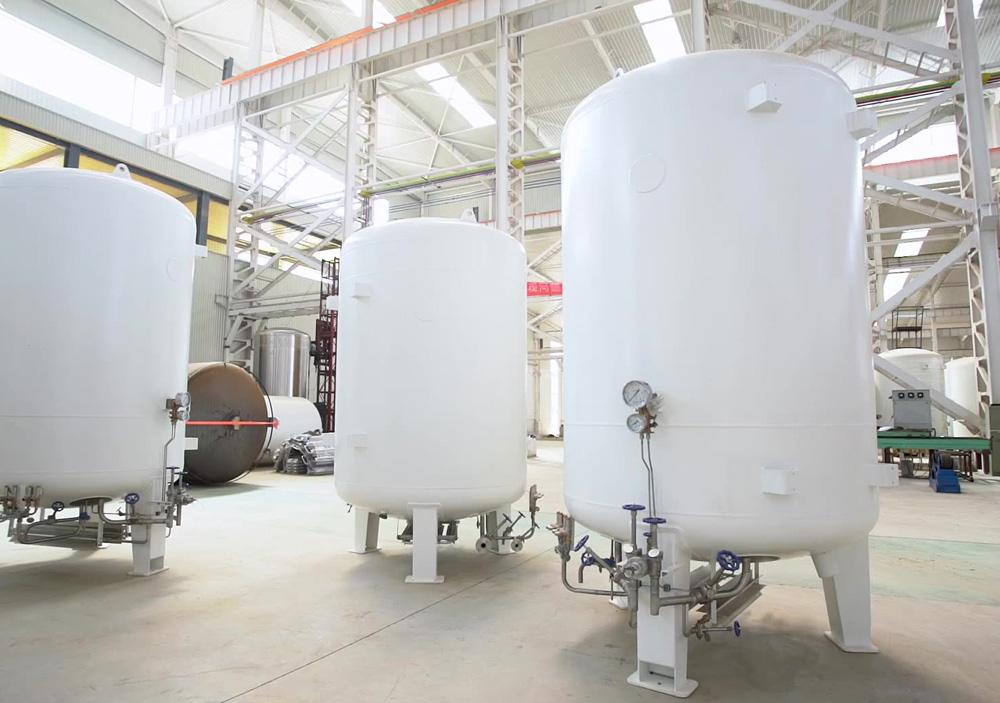
Key Benefits of Refinery Filters:
- Extend equipment lifespan and reduce maintenance costs
- Maintain product purity and improve fuel quality
- Reduce environmental pollutants and ensure regulatory compliance
Flare Systems (Refinery Burners)
Refinery flares are designed to safely burn excess or unrecoverable gases. The system includes a flare stack, burner, piping, and gas collection network, ensuring process safety. Flares play a critical role not only during normal operations but also in emergency scenarios, preventing explosions and equipment damage.
The flare’s impact on product quality is indirect but vital. By burning excess gases, it stabilizes system pressure, allowing refining processes to continue uninterrupted. Petrosazeh flares, equipped with gas recovery systems, reduce energy consumption and minimize process waste.
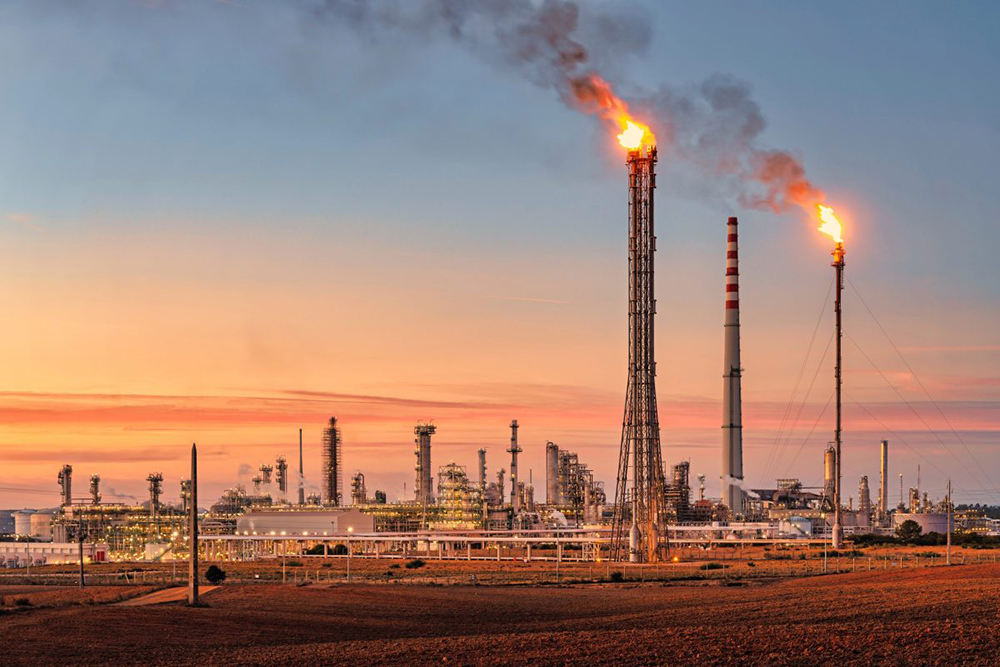
Key Benefits of Refinery Flares:
- Enhance safety and prevent accidents
- Reduce environmental emissions and smoke
- Recover usable gases, lowering costs
Refinery Condensers
Refinery condensers convert vapor into liquid and separate components in processes such as distillation, cracking, and natural gas processing. Types include shell-and-tube, air-cooled, and compact condensers, chosen according to process needs.
Condensers precisely separate light vapors like LPG and naphtha, preventing unwanted mixing. Optimized design enhances efficiency, minimizes pressure drop, and reduces energy consumption. These systems also contribute to producing high-purity products in compliance with environmental standards.
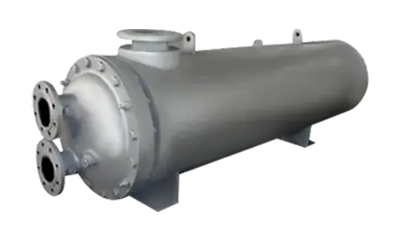
Key Benefits of Refinery Condensers:
- Precise component separation and high-quality product output
- Energy recovery and reduced operational costs
- Improved process stability and minimized material loss
Regular Maintenance: Ensuring Consistent Quality
Routine maintenance is essential for sustaining product quality. Without periodic servicing, refinery equipment may fail or produce substandard products.
Petrosazeh provides preventive maintenance and digital monitoring, ensuring equipment performs optimally over time. Regular cleaning prevents coke buildup in furnaces, filters maintain product purity, and flares and condensers retain safety and efficiency.
Advanced technologies such as AI and IoT enable failure prediction, ensuring consistent product quality in the long term.
Read more: The Importance of Maintenance for Refinery Equipment
Digital Innovations in Refinery Equipment
Modern technologies—including smart sensors, digital systems, and automation—significantly improve refinery equipment efficiency. IoT sensors monitor temperature, pressure, and flow in real time, predicting issues to prevent process downtime.
These innovations enhance accuracy, reduce energy consumption, and minimize environmental pollutants. The future of refining, leveraging such technologies, promises higher product quality and improved plant efficiency.
Overall Impact of Equipment on Product Quality
Furnaces, filters, flares, and condensers each ensure product quality in distinct ways:
- Furnaces: provide necessary heat
- Filters: maintain purity
- Flares: ensure safety
- Condensers: enable precise separation
Choosing high-quality equipment and performing regular maintenance guarantees refinery success in producing standardized, competitive products.
Conclusion
Refinery equipment forms the backbone of oil refining processes, playing a key role in determining product quality. Petrosazeh, through advanced equipment, maintenance services, and digital innovations, helps refineries produce high-quality products meeting global standards. Proper equipment selection and professional care ensure the long-term success of refining operations.
References:
- https://www.dombor.com/refinery-equipment-things-you-need-to-know/
- https://burnertec.com/how-refinery-flare-systems-improve-safety-and-efficiency/
- https://www.tangovalve.com/refinery-equipment-guide-everything-you-need-to-know/
- https://www.alfalaval.us/industries/energy-and-utilities/crude-oil-refinery/benefits/
- https://precisionfiltration.com/industries/refinery/
- https://www.purepathtech.com/equipment-used-in-petrochemical-refineries
- https://intrinsicallysafestore.com/blog/how-oil-refinery-works/





